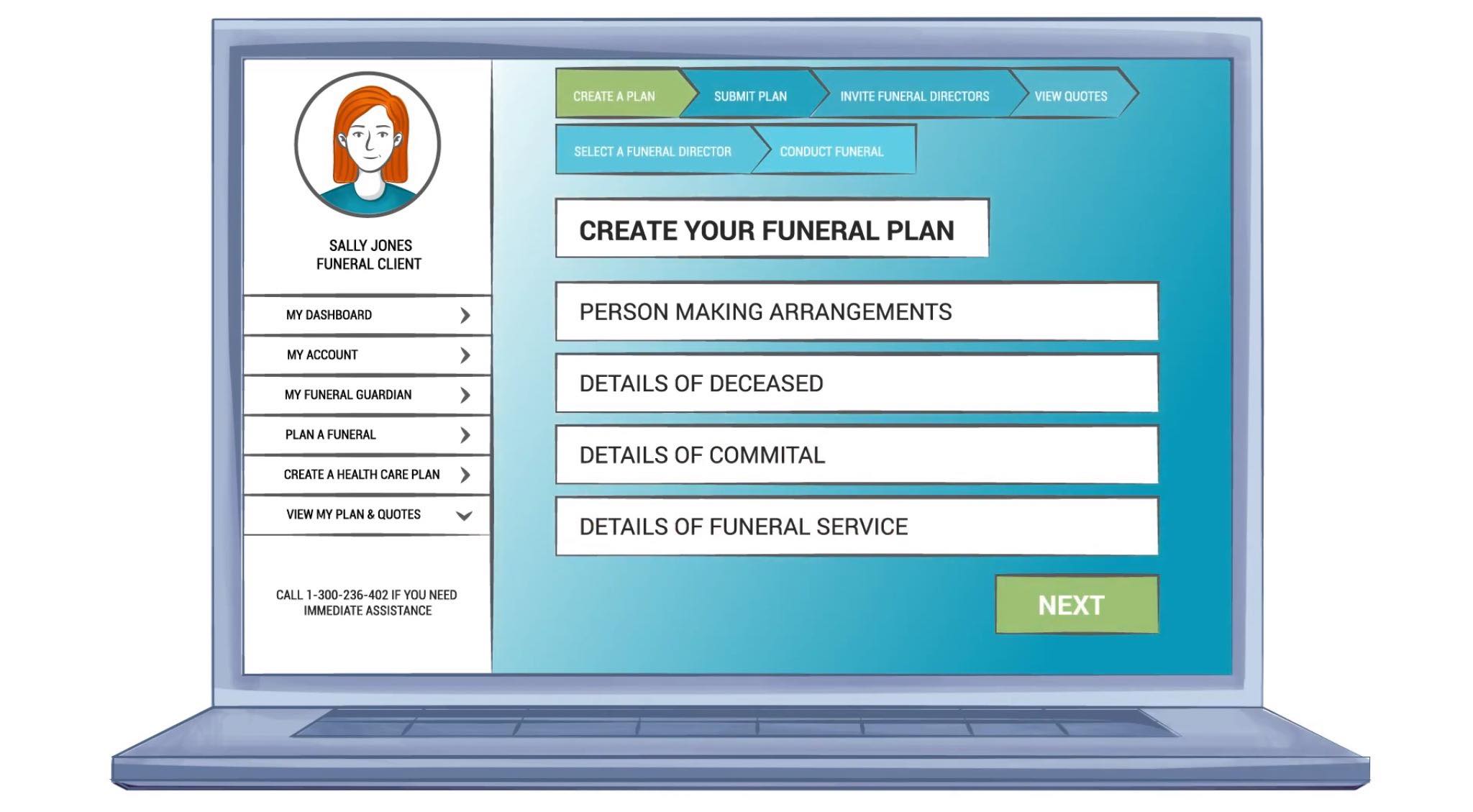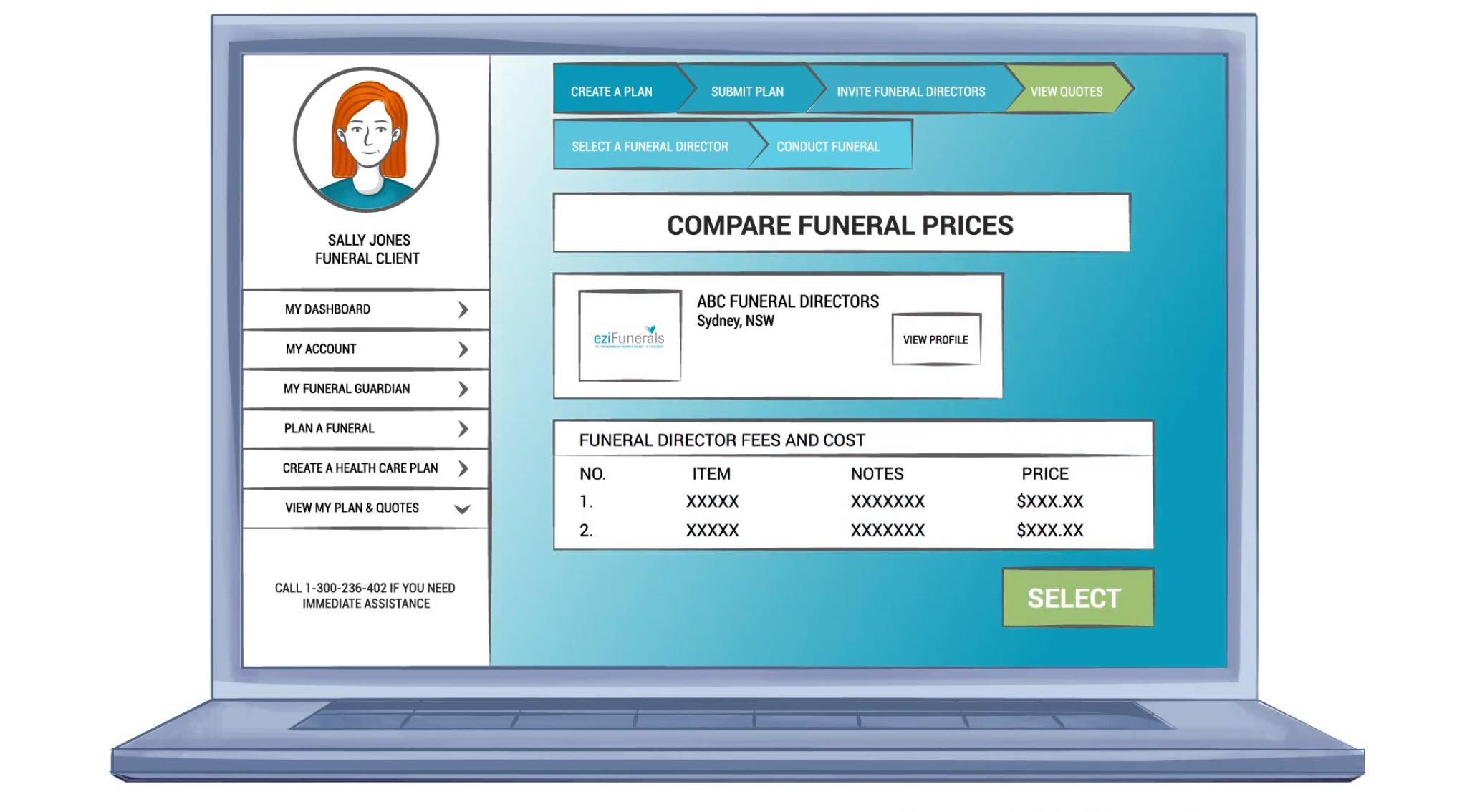You can also browse the topics below to find what you are looking for.
Before The Cremation Can Take Place
Before cremation can take place, it will be necessary for you to follow a number of important steps in order to comply with the relevant State requirements.
1. Obtain a Medical Certificate of Cause of Death
A Medical Certificate of Cause of Death is required from the Doctor who certified the death. This can be done at the time the Doctor certifies, or alternatively by arranging to collect it from his surgery.
If the death is subject to a Coronial investigation, a Coroners Certificate is issued by the Coroner’s Office. In the case of a stillborn death, a Medical Certificate of Cause of Stillborn or Neonatal Death replaces the Medical Certificate of Cause of Death (available from the hospital where the death occurred).
2. Apply for a Single Funeral Permit
The requirements relating to Single Funeral Permits are generally governed by Cemeteries Acts, Cemetery By- laws and other laws in each State.
An application for a Single Funeral Permit must be completed and returned to the managing authority together with the relevant fees. Proof of securing Public Liability insurance to the value of $5,000,000 may also be required.
The application form will outline your responsibilities and the terms and conditions for taking charge of the funeral arrangements as if you were a licensed funeral director.
Your responsibilities will include:
- Identification and preparation of the deceased
- Planning the funeral
- Making adequate transport arrangements
- Conducting the funeral on the day
- Compliance with the terms and conditions set out in the Single Funeral Permit by the relevant managing State authority.
Conditions prescribed by the managing authorities in each State may include the following:
- The applicant must be over 18 years of age and provide their full given names and surname on all documentation.
- Satisfactory arrangements are made for the safe holding of the body prior to the burial/cremation which meet the required health regulations.
- A suitable coffin or casket is obtained for the deceased person named on the permit.
- Secure Public Liability Insurance to a specified value is obtained.
- All necessary forms are completed showing the deceased person’s legal surname and given names in full.
- Provision of a suitable and respectable vehicle to transport the body and coffin within the cemetery.
3. Book the funeral
Once your application has been approved, it will then be necessary for you to book the day and time of the cremation with the cemetery.
At the time of the booking you will generally be asked to provide the following information:
- Your name, phone and fax number or email address.
- Confirmation that you have a current Single Funeral Permit
- Name of the cemetery you require the booking
- Date and Chapel time that you require for the cremation (you should have a second choice ready in the event your preferred time may not be available):
- The deceased’s legal surname and given names
- Date of death and age of the deceased
4. Obtain a Certificate of Memorial Attendant
If the deceased person is to be cremated a Certificate of Medical Attendant form is also required in most States. It is important to advise the Doctor/Coroner of your intentions at the same time as ordering the Medical Certificate of Cause of Death (or Medical Certificate of Cause of Stillborn or Neonatal Death).
A Certificate of Medical Attendant form will generally take the Doctor approximately 30-45 minutes to complete.
The Coroner does not need to complete this Certificate; however the Coroner will still need to be made aware that the deceased person is to be cremated so that a Coroner’s Certificate to Cremate is issued.
5. Apply for a Permit to Cremate
An Application for a Permit to Cremate will also need to be completed for the cremation to take place.
6. Obtain Medical Referee Approval
On completion of the Certificate of Medical Attendant form and Application for a Permit to Cremate, you will take both these forms to a Medical Referee. This is a doctor appointed under the Cremations Act. The managing authority in your State may be able to provide you with a list of the Medical Referees within your area. The relevant Department of Health can also provide further names if required.
The Medical Referee will check both the Certificate of Medical Attendant and Application for a Permit to Cremate prior to issuing you with a Permit to Cremate.
You must also ensure that if the deceased had a pacemaker it has been removed.
The Medical Referee keeps both the Certificate of Medical Attendant form and Application for a Permit to Cremate. It is normal for Medical Referees to charge for this service.
7. Apply for Cremation Approval
An Application for Cremation is then required to be completed and lodged with the relevant crematorium. The legal surname and given names of the deceased must be used in the application as with all other forms.
Your full given names, surname and address as Administrator must also be completed, signed and dated. It is also important to specify in the application what arrangements you have decided with regard to the ashes.
A copy of the Application for Cremation and the Permit to Cremate must be submitted to the crematorium 48 hours prior to the funeral so that if there are any errors they can be rectified and resubmitted in plenty of time before the funeral.
Payment must be made prior to the funeral taking place.
8. Organise the Coffin
A substantial coffin is required for cremation bearing the name of the deceased person stamped in legible characters on a metal plate on the lid of the coffin. A lead strip with the name of the deceased must be placed under the name plate on the coffin/casket.
Note: When purchasing a coffin, you will need to ensure that you have a suitably enclosed transport vehicle, together with a cover for the coffin.




